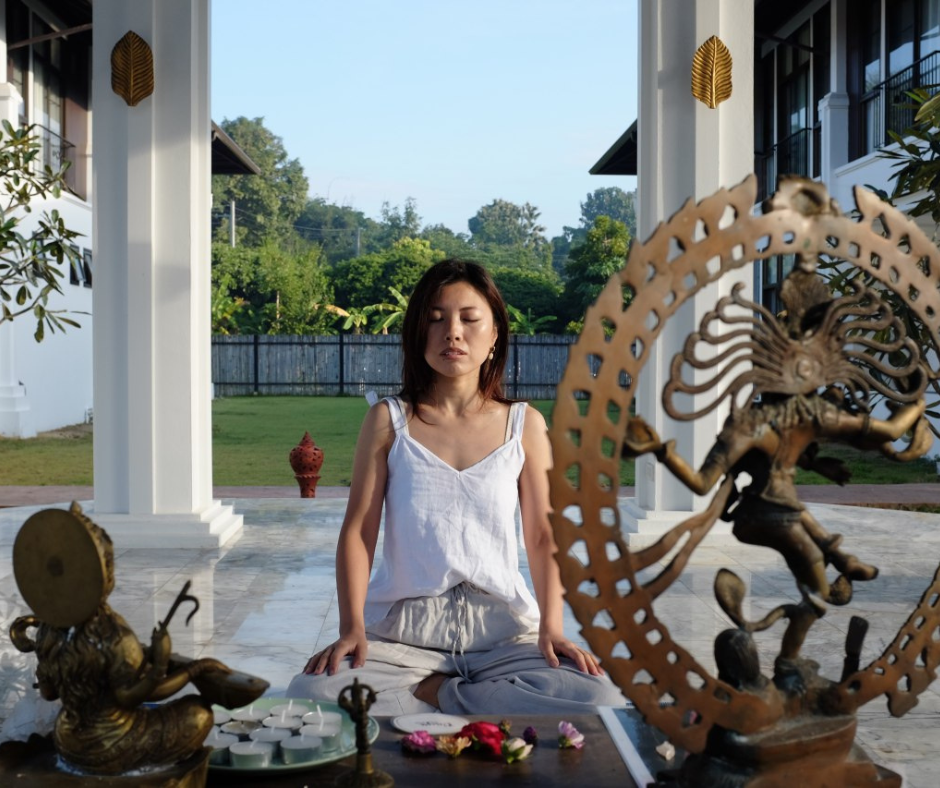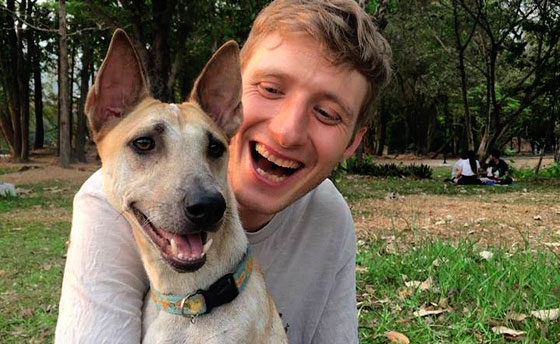Chapters 5 and 6
In chapters 5 and 6 we learn in great detail various rites and rituals that can be carried out in order to worship Shakti. These are accompanied with many mantras that are to be repeated. Here is an example of one of these mantras;
“O Adya Kali, Who abidest in the innermost soul of all, Who art the innermost light, O Mother! accept this japa of my heart. I bow to Thee (156).”
Chapter 7
In chapter 7 Shiva gives a long hymn of praise that lists the 100 names of Kali;
“This hymn of praise of a hundred names, which is the Primeval Kali Herself, if read, or caused to be read, if heard, or caused to be heard, frees from all sins and leads to union with Brahman.”
He then offers a protective mantra that enables you to obtain all you desire. In the Kali Yuga, when men are weak and cannot offer great sacrifice or penance, they may utter these mantras with purity of heart and attain liberation.
Chapter 8

In chapter 8 Parvati asks Shiva about the castes (classes) during the Kali Yuga. Shiva tells us that during this age we should fulfill all our worldly duties toward mother, father, wife and children before we choose the life of an ascetic. We learn in depth the ways of life of a householder who is devoted to Brahman;
“The householder should not be inordinately addicted to sleep, idling, care for the body, dressing his hair, eating or drinking, or attention to his clothes (51). He should be moderate as to food, sleep, speech, and sexual intercourse, and be sincere, humble, pure, free from sloth, and persevering (52). Chivalrous to his foes, modest before his friends, relatives, and elders, he should neither respect those who deserve censure nor slight those who are worthy of respect.”
Chapters 9 and 10
In the ninth chapter and tenth chapter we learn in great detail a series of rites and rituals. These rites are given specifically for the Kali Yuga when men are weak of mind and body.
Chapters 11 and 12
Chapter 11 and 12 deal with human laws and how to bring them into alignment with Dharma. We learn which practices should be carried out as expiatory rites for removing sin. Often fasting is recommended in order to purify yourself after a transgression. In more extreme cases, punishments of violence or death are recommended. These laws are designed to help to purify men of their inner pollution during the Kali Yuga.
Chapter 13
In Chapter 13 Parvati asks Shiva how we should conceive of Mahakali. He tells her that;
“As white, yellow, and other colours all disappear in black, in the same way, O Shailaja! all beings enter Kali (5). Therefore it is that by those who have attained the knowledge of the means of final liberation, the attributeless, formless, and beneficent Kalashakti is endowed with the colour of blackness (6).”
We learn rituals for worshipping the deities and the planets and Shiva tells us that we should always act without thought of reward, especially during worship. In this way we will escape rebirth and attain nirvana.
Chapter 14
In the final chapter Shiva tells us of the great benefits of worshipping the Shiva-linga. We hear about the knowledge needed to attain liberation and the importance of focusing your whole life towards Brahman. This chapter contains some beautiful passages;
“The Spirit, the eternal witness, is in its own nature like the void which exists both outside and inside all things, and which has neither birth nor childhood, nor youth nor old age, but is the eternal intelligence which is ever the same, knowing no change or decay (129-130)”
“The knowledge of the Spirit, O Devi! is the one means of attaining final liberation; and he who possesses it is verily – yea, verily – liberated in this world, even yet whilst living, there is no doubt of that (135).”


